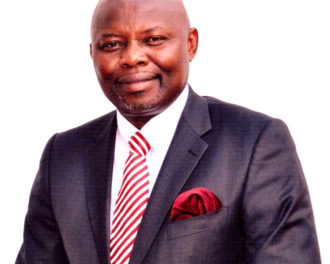
President Paul Kagame would like the next president after him to be young and « preferably female ». The president was adding a rejoinder to his earlier statement made in the US where he mentioned that Rwanda’s next president should be young.
“What I forgot to mention then is that I prefer the next president to be young and a female,” he said, before qualifying it as only his opinion that should not discourage the older generation from vying for Rwanda’s presidency. His second seven-year term ends in 2017.
Kagame is a strong critic of the life presidency syndrome that is getting common in Africa. The president has stated publicly that he will not amend the constitution that offers a maximum of two seven-year terms for a sitting president.
Rwanda is renowned for having policies and initiatives that foster the promotion of women and gender equality. Thirty percentage of administrative positions are reserved for women, who also occupy over 56% of parliamentary seats.
Kagame’s remarks were made while addressing the press at Village Urugwiro attended by several cabinet ministers and senior government officials. He responded to issues that relate to the current food crisis, regional integration, ICT progress, raising fuel costs, security and good governance.
Kagame also dismissed as biased recent reports that ranked Rwanda among the failed states. “If you still believe that Rwanda is a failed state 17 years after genocide then you probably come from another planet,” he said, adding that the report ‘contradicts itself.”
“I actually don’t see any reason why government would want to kill these people because I don’t know who they are and what they stand for!” said Kagame.
He challenged Rwandans to consider where the nation would be had it waited on Amnesty International to rescue it. « It is getting pathetic, » he said, before relating the allegations to the way Africans are treated and degraded. « That’s why our governments are not called governments, they are called regimes. »
Kagame also took a swipe at the west for degrading anything African. « We’re ahead of them by far. For us, we believe it and we’ve done it, » Kagame said.
Much of Kagame’s criticism was also directed at Amnesty International which came up with a very critical study on the Gacaca traditional courts. The report also called for a review of the law on Genocide ideology – arguing it was being used to silence opposition voices. President Kagame described them as “trash”, “pathetic” and “no sense”.
Commenting on suspects arrested by the National Police for collaborating with fugitive Kayumba Nyamwasa, President Kagame said there was enough evidence implicating the suspects. The suspects have already pleaded guilty to the crime.
Other issues raised included the crisis in Southern Sudan that Kagame regarded as part of the problems that Africa is still dealing with. « There are problems that people are seriously concerned about, but there are efforts to deal with it, » he said.
Kagame dismissed reports that Rwanda was planning to send troops to Somalia. « If only we could. We’re already heavily deployed in Darfur. We cannot have heavy deployment in Sudan and have another heavy deployment in Somalia. We’re already overstretched, » Kagame said. Responding to the energy concerns that Rwanda is facing, Kagame said that the government has been explaining the investment opportunities in the energy sector that include biogas and methane. He said the government was ready to make investments in the sector, alongside encouraging local and foreign investors. The government has also considered entering into partnership with the private sector.
On concerns over food shortage, Kagame said the problem can be turned into an opportunity to tap. Rwanda’s vision is geared towards providing enough to the people, where emphasis is placed on production. Kagame said adjusted are also made to enable Rwandans to survive, before relating the issue to the wider international crisis over oil and food prices.
While commenting on rising fuel costs, Kagame said some nations especially landlocked ones, face more problems. He said the government is already subsidizing fuel prices and storing enough as an effort to stabilise costs.
Earlier on, Kagame responded to concerns over China’s growing influence in Africa, where he said that Africa deserves better by not allowing any form of colonialism. “The days of colonialism are over. For us it’s about fairness, dignity, justice whether it’s China or another country,” said Kagame. He added that foreign investment should not be based on controlling the recipient country.
On delays in regional integration, Kagame said that the « process is complex » involving many diverse issues. « Some of the things are not easy and the pace is going to be determined by the realities we meet on the way, » he said, before adding that the region cannot be discouraged by the slow integration pace. He said that setting deadlines is essential in order to achieve targets set. « The pace depends on how people grasp issues,” he added.
While addressing issues of ICT, Kagame said that Rwanda is on the right track trying to be ambitious as there is evident growth in the ICT sector. So far Rwanda has about 3.6 million mobile subscribers and actors like interconnection fees are believed to hinder progress. Recent problems in Rwandatel are also believed to have had negative effect on the IT environment.
President Kagame reserved time at the end of the press conference to have a group photograph with members of the media as requested by one of the journalists.
http://www.rwandagateway.org/spip.php?article1132
Posté par rwandaises.com



